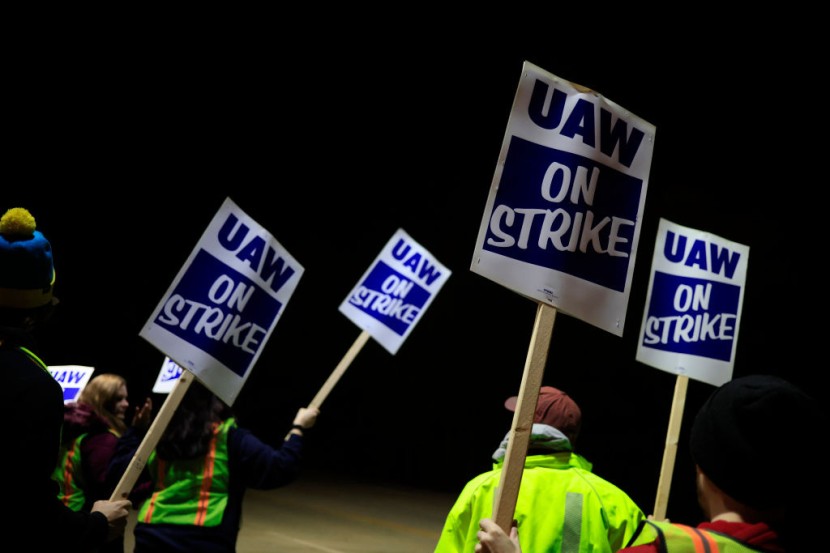The United Auto Workers (UAW) union has announced a campaign to organize the US factories of non-unionized automakers, including Toyota, Tesla, Honda, and others.
The UAW aims to expand its membership significantly after negotiating record contracts with Detroit's Big Three automakers, as per The Washington Post.
UAW's Southward Organizing Drive

Following the recent ratification of new contracts with Detroit automakers, the UAW revealed plans to organize workers simultaneously at over a dozen non-union auto factories. This organizing drive will target nearly 150,000 workers at factories primarily in the southern region, where the union has struggled to recruit new members.
The UAW will focus on organizing US plants operated by Toyota, Honda, Hyundai, Nissan, Subaru, Mazda, Volkswagen, Mercedes, BMW, and Volvo. Additionally, the union aims to include factories run by electric vehicle leader Tesla, as well as startups Rivian and Lucid.
President of the UAW, Shawn Fain, emphasized in a statement that workers do not have to live paycheck to paycheck and worry about their basic needs while the companies make billions in profits. The union aims to offer these workers the opportunity for a better life.
One of the factories with the strongest interest in the union is Toyota's assembly complex in Georgetown, Kentucky, which employs over 7,800 workers. However, Toyota declined to comment on the organizers' claims.
This organizing drive follows a series of strikes that lasted six weeks at factories run by Ford, General Motors, and Stellantis, resulting in new contracts.
These contracts include a 33% increase in top assembly plant worker pay by April 2028, the elimination of lower tiers of wages, raises for temporary workers, and a shortened period for full-time workers to reach the top of the pay scale, according to The Guardian.
Automakers Respond to UAW Organizing Efforts
In response to the UAW's organizing efforts, several automakers, including Toyota, Honda, Nissan, Subaru, and Hyundai, increased wages at their US factories and reduced the time it takes for workers to reach the top pay scale. The UAW viewed these moves as attempts to hinder their organizing efforts.
Furthermore, with a notice on their website, the UAW declared an end to the six-week labor conflict between the Big Three automakers on November 20, 2023. Although the agreement brought relief, both parties should not assume long-term peace between the UAW and automakers, given their history of labor disputes.
Both the UAW and automakers have exhibited a pattern of adversarial behavior, which creates a cycle of distrust and escalates with each contract negotiation. Academic studies on game theory suggest that engaging in collaborative and trust-based approaches rather than power-based strategies would be more beneficial for both parties.
To break the cycle of distrust, the UAW and automakers should negotiate how they will deal with it in the future, focusing on trust-building tactics and avoiding distrustful behaviors.
They should review a glossary of negotiating terms together to agree on fair and trusting negotiation tactics. Clear consequences should be established if either party fails to adhere to the agreed-upon trust-building tactics.
Building a trusting relationship between management and labor may require effort, but it will likely be less costly than the $10.4 billion in economic losses incurred during the recent strike, Forbes reported.
Related Article : After 17 Days Rescuers Finally Reach 41 Trapped Miners in India
© 2026 HNGN, All rights reserved. Do not reproduce without permission.








